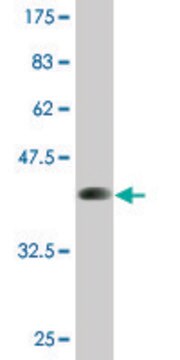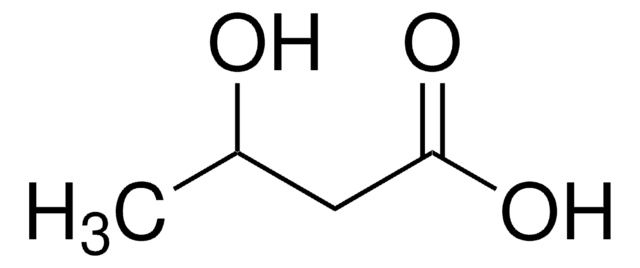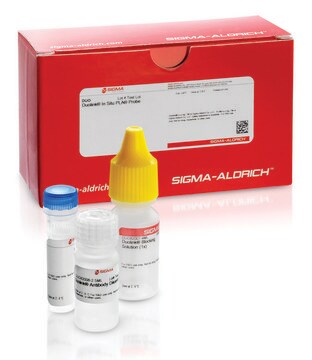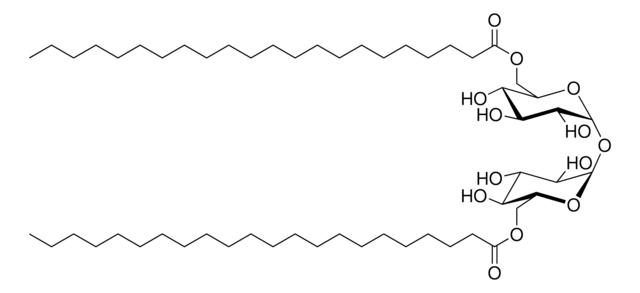MABC128
Anti-FIP200 Antibody, clone 14E11.2
clone 14E11.2, from mouse
Synonym(e):
RB1-inducible coiled-coil protein, 1FAK family kinase-interacting protein of 200 kDa, FIP200
About This Item
WB
western blot: suitable
Empfohlene Produkte
Biologische Quelle
mouse
Qualitätsniveau
Antikörperform
purified antibody
Antikörper-Produkttyp
primary antibodies
Klon
14E11.2, monoclonal
Speziesreaktivität
human, mouse
Methode(n)
immunocytochemistry: suitable
western blot: suitable
Isotyp
IgG2bκ
NCBI-Hinterlegungsnummer
UniProt-Hinterlegungsnummer
Versandbedingung
wet ice
Posttranslationale Modifikation Target
unmodified
Angaben zum Gen
human ... RB1CC1(9821)
Allgemeine Beschreibung
The previously assigned protein identifier Q86YR4 has been merged into Q8TDY2. Full details can be found on the UniProt database.
Spezifität
Immunogen
Anwendung
Apoptose & Krebs
Apoptose - Weiterführende Produkte
Immunocytochemistry Analysis: A 1:500 dilution from a representative lot detected FIP200 in NIH/3T3, A431, and HeLa cells.
Immunocytochemistry Analysis: A 1:250 dilution from a representative lot detected FIP200 in untreated and chloroquinone-treated HUVEC cells.
Qualität
Western Blot Analysis: 1 µg/mL of this antibody detected FIP200 in 10 µg of HeLa cell lysate.
Zielbeschreibung
Physikalische Form
Lagerung und Haltbarkeit
Hinweis zur Analyse
HeLa cell lysate
Sonstige Hinweise
Haftungsausschluss
Sie haben nicht das passende Produkt gefunden?
Probieren Sie unser Produkt-Auswahlhilfe. aus.
Lagerklassenschlüssel
12 - Non Combustible Liquids
WGK
WGK 1
Flammpunkt (°F)
Not applicable
Flammpunkt (°C)
Not applicable
Analysenzertifikate (COA)
Suchen Sie nach Analysenzertifikate (COA), indem Sie die Lot-/Chargennummer des Produkts eingeben. Lot- und Chargennummern sind auf dem Produktetikett hinter den Wörtern ‘Lot’ oder ‘Batch’ (Lot oder Charge) zu finden.
Besitzen Sie dieses Produkt bereits?
In der Dokumentenbibliothek finden Sie die Dokumentation zu den Produkten, die Sie kürzlich erworben haben.
Artikel
Autophagy is a highly regulated process that is involved in cell growth, development, and death. In autophagy cells destroy their own cytoplasmic components in a very systematic manner and recycle them.
Unser Team von Wissenschaftlern verfügt über Erfahrung in allen Forschungsbereichen einschließlich Life Science, Materialwissenschaften, chemischer Synthese, Chromatographie, Analytik und vielen mehr..
Setzen Sie sich mit dem technischen Dienst in Verbindung.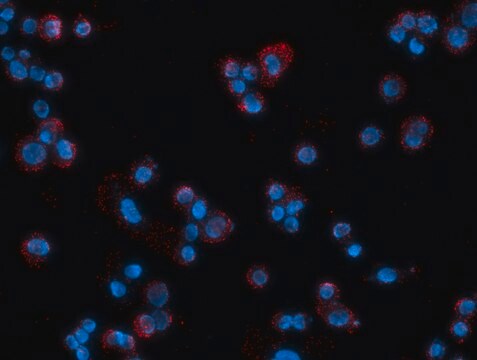

![Poly-[(R)-3-hydroxybuttersäure] natural origin](/deepweb/assets/sigmaaldrich/product/structures/129/476/7d1c924b-f644-4889-a2d6-d7a923ce382c/640/7d1c924b-f644-4889-a2d6-d7a923ce382c.png)


